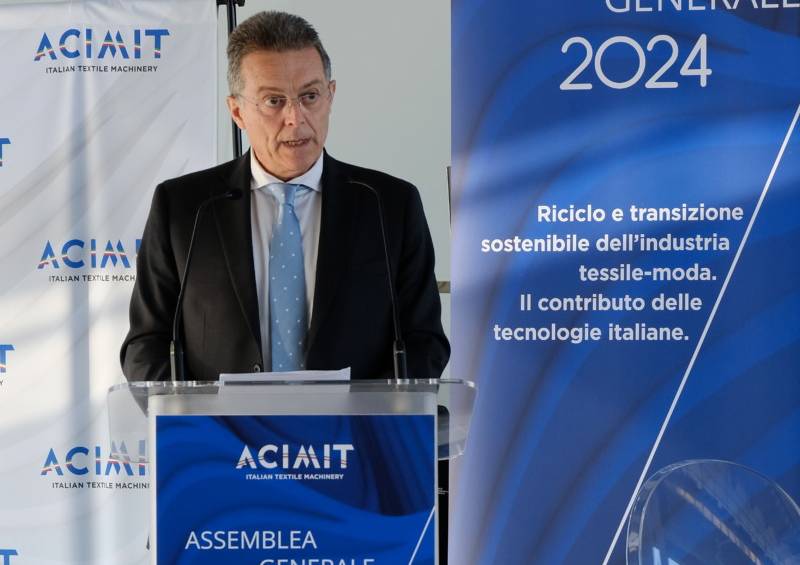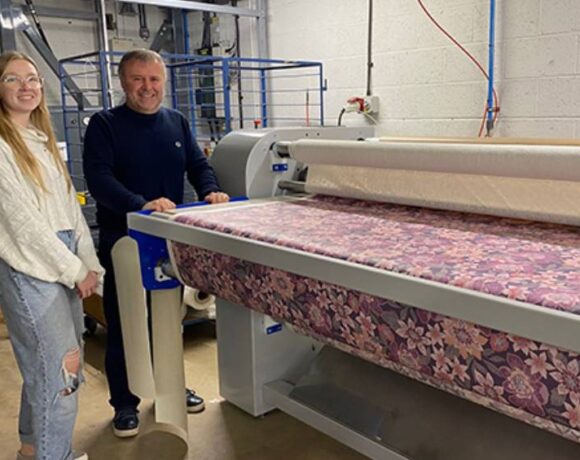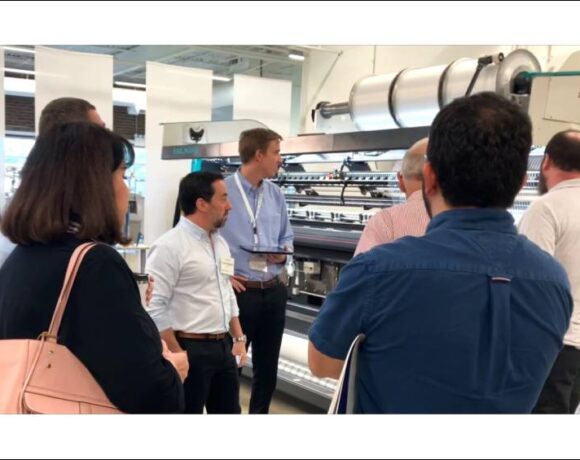Italian Textile Machinery Industry Prepares for Green Transition Challenges

The General Assembly of ACIMIT, the Italian Textile Machinery Manufacturers Association, held in Milan on July 9, emphasized the industry’s commitment to innovation amidst current global uncertainties. Marco Salvadè, ACIMIT’s president, highlighted key data from the Italian textile machinery sector: in 2023, production and exports both declined by 16%, reaching values of 2.3 billion euros and 2 billion euros respectively.
Despite a challenging international market, Italy continues to export significant machinery volumes to China, Turkey, India, and the United States. Early 2024 has shown slight improvements, particularly in China, Egypt, Pakistan, Brazil, and Japan, albeit amidst geopolitical tensions and fluctuating demand.
“In 2024, uncertainties will persist,” remarked Salvadè, noting geopolitical instability and market fluctuations as primary concerns. Nevertheless, he emphasized Italy’s leadership alongside China, Germany, and Japan, praising the sector’s global reputation for reliability, expertise, and a blend of tradition and innovation.
Amidst these challenges, the Italian textile machinery sector is gearing up to support sustainable initiatives, especially in textile recycling—a key focus of the ACIMIT General Assembly. European Union guidelines promoting green and circular transitions in textiles underscore the sector’s role in advancing technologies for garment sorting, preparation, and recycling processes.
Salvadè stressed the importance of enhancing R&D efforts to meet these challenges and capitalize on new business models. “The circular transformation presents a strategic opportunity for technology suppliers,” he noted, underscoring plans for increased collaboration with textile companies.














